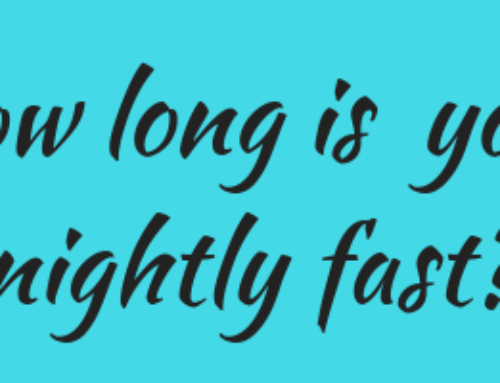Are you having troubles sleeping through the night? Maybe your sleep isn’t compromised every night, but you do find yourself challenged at least once or twice per week. Either you can’t fall asleep, or you can fall asleep only to wake up in the wee hours of the night.
I don’t have to tell you that a disrupted sleep pattern can leave you feeling exhausted and stressed out the following day. Consequently, you might find yourself grabbing caffeinated beverages and high sugar foods just to get energy — which sends you on a high, only to crash back down.
The science of sleep is fascinating, complicated, and growing. We certainly hear more about it today via the health news, then we did even five years ago. Sleep is a daily necessity that we all have. It is the great equalizer among humans. Yet, in the science world we are just beginning to understand all the ways it helps us.
People who get less sleep on a regular basis, tend to be at higher risk for many health issues including diabetes, heart disease, and certain types of cancer; not to mention effects like slower metabolism, weight gain, hormone imbalance, and inflammation. And don’t forget the impact lack of sleep can have on moods, memory, and decision-making skills. Finally, did you know that a lack of sleep may even negate the health benefits of your exercise program? Yikes.
Knowing this, it’s easy to see the three main purposes of sleep:
- To restore our body and mind. Our bodies repair, grow and even “detoxify” or “clean house” while we sleep.
- To improve our brain’s ability to learn and remember things, technically known as “synaptic plasticity”.
- To conserve some energy so we’re not active 24-hours a day, every day.
Adults need more sleep than you might think. It’s less than a growing child, but you may be surprised to hear that it is recommended that all adults get 7 – 9 hours a night.
Try not to skimp on your sleep.
Here are some actionable tips you can put into place to improve your sleep cycle starting tonight.
- Put yourself on a consistent sleep schedule. This means going to bed at the same time very night of the week. Make it a priority and you’re more likely to achieve it.
- Reduce the use of electronic devices in the evening hours. The blue light emitted from such devices can interrupt your body’s production of melatonin, a hormone that helps induce sleep. There are blue light filters and apps you can purchase for your devices that will block the blue light in the evening hours. These are very beneficial for those individuals who have a habit of being on devices like computers, pads, or phones in the evening hours. These devices can have a greater impact than televisions, because they are closer to the eyes of an individual.
- Dim the lights in your household in the early evening hours and engage in relaxing activities that help calm the brain. Think reading, lighthearted entertainment like a comedy, or soaking in a tub which brings me to another tip.
- Take an Epsom salt bath. Epsom salts are made from magnesium, and magnesium has a relaxing effect on the body. Magnesium is absorbed through the skin, and produces a therapeutic calming effect on the muscles. Epsom salt can be found at many drugstores. Add some essential lavender oil to the bath, which also has a relaxing effect.
- Take supplemental magnesium right before bed. This is an excellent tool suggested by many healthcare practitioners. Magnesium is calming, and helps with sleep. Try 200 – 400mg of magnesium in a chelated form, right before bed. Magnesium Malate and Magnesium Chelate are two products that are highly absorbable and bioavailable.
- Eat in a way that balances your blood sugar throughout the day. Abstain from refined and processed carbs and choose high fiber carbs instead. Eat a serving of protein at each meal while making sure your snacks contain protein as well. And don’t fear eating fat, which also helps to balance blood sugar.
- Go outside into the sunshine during the day. In fact, some experts suggest getting outside first thing in the morning to help set the body’s circadian rhythm.
- Exercise during the day, preferably before 6pm because this is when your body is starting to go into its rest and relaxation phase. Exercising in the evening can potentially energize one’s self to the point that it is hard to fall asleep.
- Cut off your caffeine after 12pm. Every person’s metabolism is different; some people can metabolize caffeine quite effectively, while others do not. If you know caffeine affects your sleep, then giving it up altogether might be in order. Otherwise, cut it off in the afternoon. You might be amazed at the difference.
I hope you found these tips helpful. As always, if you enjoyed this blog post, please share with family and friends.






